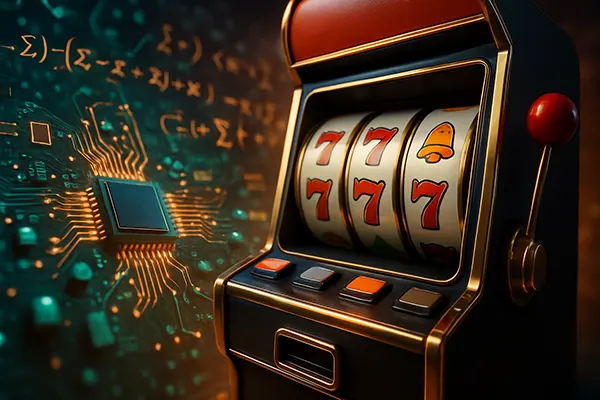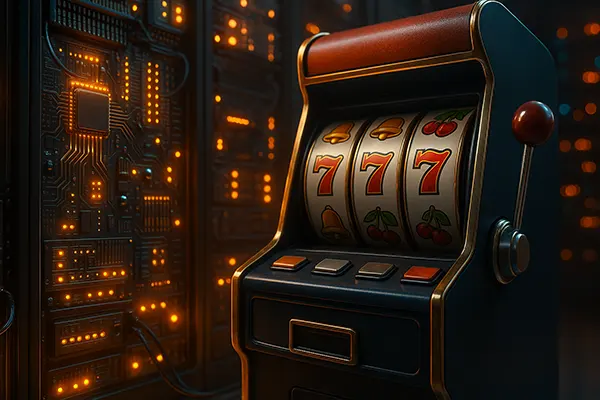
Slot Algorithms: What Really Happens Behind the Scenes
When players engage with slot games, they are often captivated by the lights, sounds, and themes, but the real mechanics occur at a far deeper level. Modern slot machines are not simply about spinning reels; they rely on complex algorithms that ensure fairness, unpredictability, and compliance with gambling regulations. To understand the true nature of these games, it is necessary to look beyond the design and explore the mathematical and technological foundations that drive every spin.
The Role of Random Number Generators
At the heart of every slot game lies the Random Number Generator (RNG). This algorithm produces thousands of numerical outcomes per second, even when no one is playing. Each number corresponds to a specific symbol combination on the reels, meaning that when a player presses the spin button, the RNG instantly selects one of these outcomes. The speed and unpredictability of this process guarantee that results cannot be influenced by previous spins.
The integrity of RNGs is verified by independent testing agencies that ensure their compliance with international gambling standards. Certification bodies such as eCOGRA, iTech Labs, and GLI test these algorithms rigorously, confirming that the mathematical randomness meets regulatory requirements. Without these checks, trust in digital gambling would be impossible to maintain.
Players often mistakenly believe that machines are programmed to “pay out” after a certain time. In reality, RNGs ensure that each spin is an independent event, unaffected by past results. This means that winning or losing streaks are entirely coincidental, not predetermined by the game itself.
Fairness and Transparency in Slot Mechanics
For operators and developers, transparency is essential in sustaining player confidence. Regulators require developers to disclose game mechanics, including payout percentages and volatility ratings, ensuring players know what to expect. These figures are not arbitrary but carefully calculated based on millions of simulated spins using the RNG.
Another measure of fairness is the use of Return to Player (RTP) percentages, which define the long-term average a game will return to players. For example, a slot with a 96% RTP is expected to return £96 for every £100 wagered, although individual outcomes vary greatly. This system gives players realistic expectations while allowing operators to maintain profitability.
Modern gambling laws in regions such as the UK, Malta, and Denmark enforce strict transparency rules, making it obligatory for operators to present certified RTP values. This level of oversight enhances trust and reduces the risk of manipulation within the industry.
How Mathematical Models Shape Gameplay
Slot games are not random chaos; they are carefully designed mathematical systems. Developers create models that determine hit frequency, jackpot sizes, and volatility. Volatility, for instance, describes the risk level of a game. Low volatility slots provide smaller but more frequent wins, while high volatility titles deliver larger payouts with longer gaps between winning spins.
These models also govern the probability of triggering bonus features, such as free spins or multipliers. Behind each feature is a coded formula dictating the exact chance of activation. Developers test and balance these probabilities extensively to ensure that gameplay remains engaging while aligning with the stated RTP.
Jackpots, especially progressive ones, are another mathematical creation. The accumulation of prize pools across multiple operators is managed by networked algorithms that track wagers in real time. This system ensures fairness, while making it possible for jackpots to reach millions of pounds, creating global excitement among players.
The Balance Between Entertainment and Regulation
Developers must find a balance between entertainment and regulation. While creating games that attract players with themes and graphics, they are equally bound by laws that limit payout percentages and ensure responsible gaming. Every calculation, from base game wins to bonus rounds, must be auditable and compliant with the relevant gambling authority.
This balance explains why slot development cycles are lengthy. Developers must perform millions of test spins under simulated conditions to confirm that theoretical probabilities align with actual results. These outcomes are then audited by regulators before the game can reach the market.
Failure to comply with these strict guidelines can result in heavy penalties, licence revocations, or removal of the game from online catalogues. As such, the balance between mathematical design and legal compliance is the backbone of the entire slot industry.

The Future of Slot Algorithms
By 2025, technological advances continue to influence how slot algorithms are built and monitored. Artificial intelligence and machine learning are increasingly used to detect irregularities, prevent fraud, and identify patterns of irresponsible gambling. This ensures both fairness and improved player protection, aligning with global trends in responsible gaming.
Blockchain technology also offers potential improvements in transparency. By recording outcomes on decentralised ledgers, developers can provide tamper-proof proof of fairness, reassuring players that algorithms are unaltered. Some operators are already experimenting with provably fair slots that integrate blockchain verification.
Looking forward, regulatory bodies are likely to demand even greater transparency. The combination of advanced RNGs, blockchain systems, and AI-driven oversight promises to enhance both security and player trust, making slot algorithms more sophisticated yet more accountable than ever before.
Responsible Gambling and Player Awareness
While algorithms ensure fairness, responsibility lies in how games are played. Regulators and operators are working to integrate player protection tools such as deposit limits, time reminders, and self-exclusion mechanisms. These measures are supported by algorithmic monitoring that identifies harmful behaviour patterns.
Awareness campaigns encourage players to view slots as entertainment rather than a way to make money. By understanding how algorithms function, players can set realistic expectations and make informed decisions. Knowledge of concepts like volatility and RTP can reduce misconceptions about how wins occur.
Ultimately, the combination of fair algorithms, regulatory enforcement, and responsible play safeguards the future of slot games. By 2025, the industry continues to evolve, but the foundation of fairness remains unchanged: every spin is determined by complex mathematics, not superstition.



